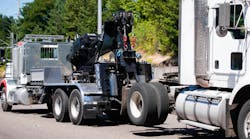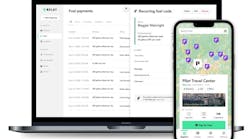In today’s training culture many different methods are being discussed, each of them intent on improving performance for the entry-level driver. They focus on performance in operating a vehicle, learning routes and equipment, new rules and regulations, CSA and other safety protocols and company policy and procedure.
What many of them do not include is engaging employees and job ownership which can be pivotal in reducing turnover associated with the culture-shock that happens so often to over the road (OTR) drivers who are new to the industry. In Career and Technical Education, this is what we call the “Affective” learning domain, and it is the most easily overlooked of all the learning domains associated with industry training and adult education. It is also the one that can point a company toward who will stay and who will go and who their “winners” are.
Training must include physical skills (psychomotor) and information (cognitive) which drivers have to get right. The Affective learning domain is where the “why” factor comes in. In the book, “Enhancing Adult Motivation to Learn”, Dr. Raymond Wlodkowski talks about the common, “carrot and stick” approach to learning which emphasizes extrinsic rewards for effort such as grades, eligibility, and money. He says that when adults do not respond to these incentives they are described as lacking ambition, initiative and/or self-direction. The question often asked by adult educators is, “How do I motivate them to learn?” which diminishes the learner's role in the learning process. This model of “we”/”them” supposes the learner as an inert helpless victim until molded by the superior instructor.


